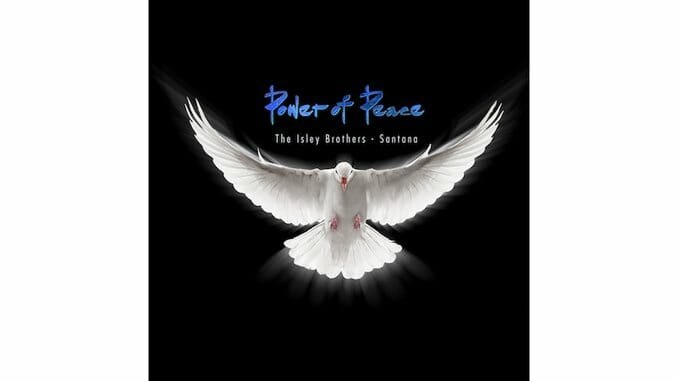Introducing Endless Mode: A New Games & Anime Site from Paste
It’s a risky proposition when two established artists with very distinctive styles collaborate on a project. Sometimes it works. Ella Fitzgerald and Louis Armstrong had very different approaches to recording a song, but they were sensitive enough to listen carefully to each other, and find ways to create music that reflected both of their strengths. A lot of them come off like Wynton Marsalis’ haphazard recordings with Eric Clapton and Willie Nelson from a decade or so back. On those albums, Marsalis never pushed either collaborator out of their comfort zones, and instead chose a polite middle ground that each artist could operate within.
For the most part, Power of Peace, the new album from the Isley Brothers and Carlos Santana suffers from this fate. On paper, the collaboration seems to makes sense. Both artists came to prominence in the late ‘60s, embracing psychedelia, African and Latin grooves along their respective journeys. As well, each has consistently leaned towards spiritual themes. So the idea of Santana and the Isleys collaborating on an album of songs about peace doesn’t sound like too much of a stretch.
The difference is that Santana has continued in the public eye, touring regularly and never straying too far from the spotlight. Supernatural, his 1999 “comeback” album, sold 27 million copies. The Isley Brothers have not enjoyed the same kind of longevity. Critically, rather than financially successful, the Isleys have endured more than their fair share of run-ins with the law involving back taxes and drugs. When they are mentioned by music historians, they are as frequently remembered for hiring a young Jimi Hendrix as a sideman as they are for their own music.
With so much common ground and shared history, having high expectations of such a collaboration is fairly reasonable. And plenty of their fans will probably enjoy Power of Peace quite a lot. It’s an impressively produced piece of work. The songs are well-arranged, creatively charted and, for the most part, beautifully performed. The vocals are generally stunning, and it is certainly one of the mysteries of the world that Ron Isley, with all of his troubled personal history, can still sing like an angel at 76. Santana’s unmistakable tone and unique approach to the guitar also remain intact.
Yet Power Of Peace is a lot less captivating than it should be. Free of any sort of creative tension, it’s an entirely predictable album. There are simply no moments within that make you drop what you’re doing and forget where you are.
Santana deserves a lot of respect for being a class act who never lets his ego get in the way of the material. He rarely overburdens the arrangements with unnecessary solos or the layered percussions that are his trademark. But, it is the songs that channel his classical style that highlight the main problems with this record. The Hendrix-ified “I Just Wanna Make Love to You” never finds its groove and is the one instance where Ron Isley struggles with what tone to set. His vocals never form into more than hovering snarls. The same could be said of the aimless adrenalized run through of Stevie Wonder’s “Higher Ground.” Trying to find a pocket between the original and the Red Hot Chili Peppers cover, Santana lets loose with a lot of noise that takes the listener nowhere.
The slower numbers fare far better. It’s hard to find fault with the sensitive, open arrangements that Santana created for Isley to sing over. But as beautiful as the performances of Billie Holiday’s “God Bless The Child,” Marvin Gaye’s “Mercy, Mercy Me” or Bacharach and David’s “What The World Needs Now Is Love” are, they come off as nothing more than pretty. Nothing is added to the listener’s understanding of the song nor that’s significantly different than what’s been done before by other singers or arrangers.
If Santana and the Isleys had played it less safe with the song selections, this could have been a very different album. There are a few glimpses of how much potential the collaboration had. By far the best of the cover songs is the version of Curtis Mayfield’s “Gypsy Woman.” The arrangements is open-ended, with percussion counterpoints that leave lots of space for Santana to play within. The musical theme expresses itself before he introduced an understated melody as intuitive and graceful as anything he has ever played. With such beautiful, soulful inflections to sing over, Isley’s vocals blend in perfectly. Nearly as successful is “I Remember,” the collection’s sole original track, written by Cindy Blackman Santana. The vocals are gorgeous and Carlos plays with restraint and taste throughout. Unfortunately, such moments of inspiration are rare, as most of the songs reflect a project that struggles to find a place to stand.
